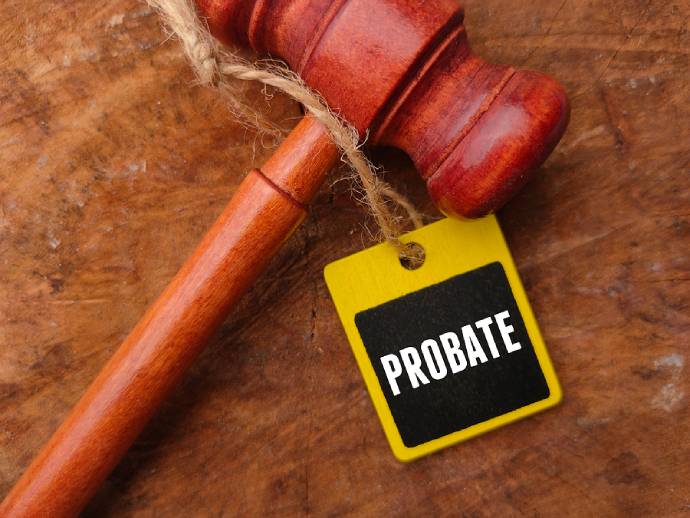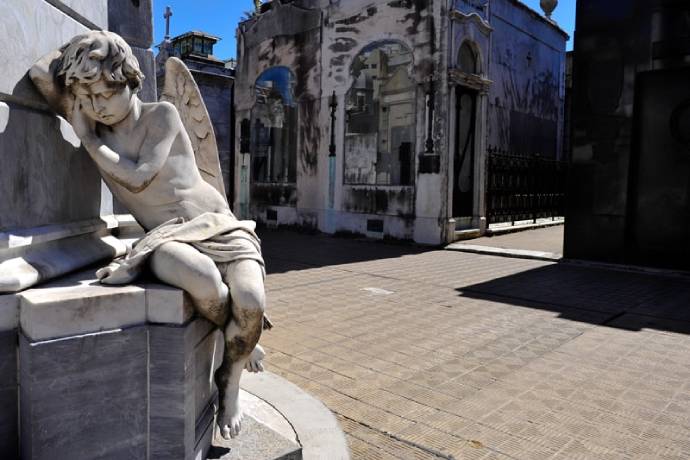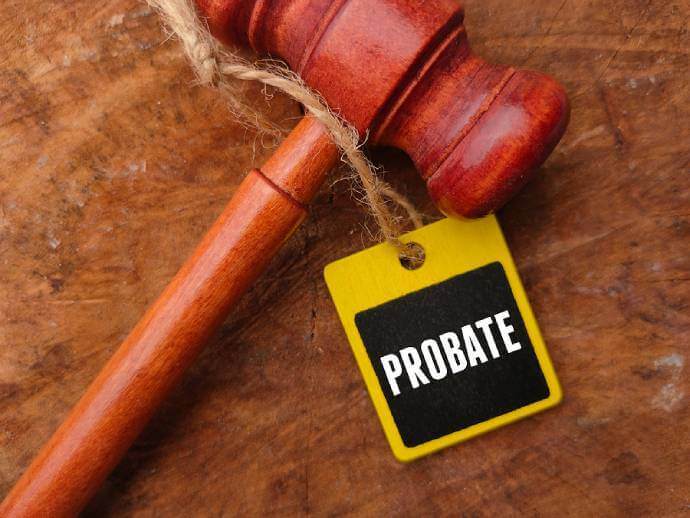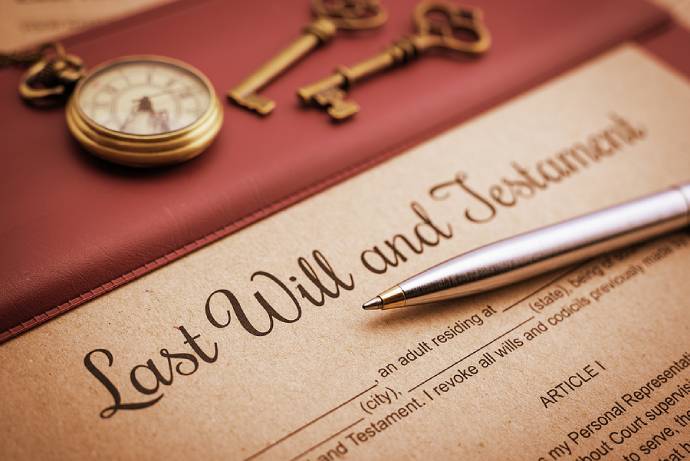Probate Law
Probate, executor, and probate taxes are unfamiliar to many of us who have never experienced death in the family. But sooner or later it will come and we would have to get familiar with the terms.
Here, you can find everything the legal terms you need to know when a family member dies in Ontario.
Probate
- What Is Probate (Definition)?
- Probate Taxes In Ontario
- What is Estate Information Return?
- Legal Cost for Obtaining a Certificate of Appointment
- What is my “Estate”?
- Letters of Probate
- I do not know if there is a will, what do I do?
- Action Plan
What is Probate?
When someone dies owning an asset (bank account, property, vehicle, etc.) by themselves, in order to transfer the ownership or title of that asset, you must go through a process.
Probate In Ontario
Probate in Ontario, or probate administration, is the process for obtaining the legal authority to act on behalf of the estate, collecting the assets, paying the debts, and distributing the assets properly.
When a person applies to the court to be the Executor, they obtain a Certificate of Appointment. This certificate is what grants the legal authority for the Executor to perform all the duties needed. This used to be called “Letters of Probate.”
The Executor or “Estate Trustee” is the named person who follows the will and distributes the estate. If there is no Last Will and Testament, then the Executor will follow the rules under the Ontario Succession Law Reform Act.”
How long does probate take in Ontario?
Right now the courts are experiencing a backlog in processing the Applications for a Certificate of Appointment of Estate Trustee (Executor). We are currently seeing process times up to 12-14 weeks at some local courts. Overall, it typically takes one year to probate an estate. If there is litigation, trusts or other complicated issues, it could take years.
What Assets Do Not Require Probate?
- Jointly owned assets with a right of survivorship (JTWROS)
- RRSPs, RRIFs, TFSAs with a named beneficiary other than ‘Estate’
- Insurance proceeds paid to a named beneficiary other than ‘Estate’
- Real estate owned outside of Ontario
- Gifts made during your life
- Assets in a trust created during your lifetime (inter vivos trusts).
What is a Certificate of Appointment of Estate Trustee?
A Certificate of Appointment of Estate Trustee is a document issued by the court that appoints someone as the executor and gives them the authority to manage and distribute the estate of a person who either died with a Last Will and Testament or who died intestate (without a will).
The Certificate of Appointment proves the authority of the Executor to administer the provisions of the deceased’s will or if there is no will, as directed by the Ontario Succession Law Reform Act lists who may apply to become the Executor of the estate as well as who the heirs of law would be.
Probate Tax and Fees In Ontario
Do I have to pay a tax to probate? I thought there was no “death tax”?
While there is no “death tax” in Ontario, you do have to pay an “Estate Administration Tax” (use to be called a Probate Fee) to the Ministry of Finance.
This tax is calculated based on the total value of all assets owned by the deceased at the time of death that will go through the probate process. It is about 1.5% of the value of the estate. You can find a calculator here:
This fee is payable to the Ministry of Finance at the time you submit your Application of a Certificate of Appointment of Estate Trustee.
Do I have to file taxes for the deceased?
Yes! The Executor must file two returns on behalf of the deceased. A return reflecting the time period during the year the person was alive, and then a second final return for the remaining of the year.
Executors should seek the advice of an accountant who is familiar with processing terminal returns. Executors should also request a Clearance Certificate from the CRA to confirm that all assessments are final.
Until the receipt of this CRA clearance, it is suggested that the final distribution of the estate not be made to protect the estate in case there is an amount due.
What do I do with the car? Who do I contact?
- Cancel the deceased’s driver’s license with Service Ontario
- Cancel the car insurance: Here is a link to help you find contact information for car insurance companies.
- Cancel CAA: Here is a link to help you contact CAA after someone dies.
- When someone dies owning a car, it can be transferred by visiting Service Ontario. You will need either the Certificate of Appointment and a copy of the will, or a letter from your lawyer stating the probate was not required. We are familiar with this process and can help provide you with this letter. Contact us at Amy MacAlpine, Partner Lawyer of Wills & Estates.
- Here is a useful link from Service Ontario for more information:
What is this Estate Information Return?
Executors beware! If you go through the probate process and have been issued a Certificate of appointment any time after January 1, 2015, you are subject to new reporting rules.
The Estate Trustee or Executor must file an Estate Information Return to the Ontario Ministry of Finance within 90 calendar days of the issued Certificate of Appointment. This is a detailed inventory reflecting everything a person owned at death and the value of those assets.
There are heavy penalties and a lifetime undertaking to report any changes in the estate value. In 2016, we are starting to see the first of audits and are waiting to see how penalties are actually served.
The Registrar has reported that the amount of administration tax collected has already tripled since the rule has been implemented. You can bet that this requirement is not going anywhere!
Legal Cost for Obtaining a Certificate of Appointment
Certificate of Appointment of Estate Trustee with a Will applications starts at $3500, plus disbursements and HST. Costs for legal additional counsel, support and/or administration services are determined on a case by case basis.
Probate Lawyer Cost
The costs to hire a probate lawyer for some services, such as for obtaining the Certificate of Appointment, can be charged to the estate. The Executor does not have to personally pay for this service.
**All pricing is reviewed and quoted with the client prior to being retained
What is my “Estate”?
Your “estate” consists of all the things that you own by yourself at death. Your car, bank accounts, clothes, jewelry, business interest, etc. If you own it, it is part of your estate. Joint accounts and beneficiary designation accounts such as TFSA or life insurance are NOT part of your estate for probate purposes.
How does my estate (assets) get transferred after I die?
Your assets that you own by yourself, can be transferred in two ways: either in accordance with a Last Will and Testament that you leave prior to your death, which states exactly who you want to have what, or if you die “intestate” (without a Last Will and Testament) the Ontario Succession Law Reform Act dictates beneficiaries your property will be transferred to.
Read more about dying without a Will.
Letter of Probate
In order to give or transfer your estate assets to a beneficiary, the Executor or Estate Trustee (the person in charge) has to be named, appointed and provided the official authority to do so. This appointment is called a Certificate of Appointment of Estate Trustee With or Without a Will. This formerly was referred to as Letter of Probate.
See below for information on how to transfer a car, or transfer title to real estate property.
I do not know if there is a will, what do I do?
- If you are not sure whether the person who died had a Last Will and Testament or not, you can contact the estates department of the local Superior court in the community where the deceased lived to see if a will was registered. For court locations and contact information, you can use the following link:
- You can also list an advertisement on a new online website Notice Connect. Among other services, they can publish a notice to lawyers, requesting that any lawyer known to have a prepared and/or stored a will for the deceased, contacts you.
- Ask, Ask, Ask!! Ask people like the deceased’s accountant, life insurance broker, financial broker, lawyer, and closest friend, as to whether they know of any Will the person may have left.
Do I need the original Will?
Yes! The Application for Certificate of Appointment with a Will requires the submission of the original will along with an Affidavit of Execution.
The Affidavit of Execution is a sworn statement from one of the witnesses, stating the formal requirements were followed.
If the original will can not be found or the Affidavit of Execution is missing, there are some things you can do to either attest to the signature or contact the witnesses. Your probate lawyer should be able to help you with these alternatives.
Who is in charge of my estate?
The Executor or the Estate Trustee is the person who is in charge of transferring (giving) your estate assets to the intended beneficiary. The Executor has many duties including but not limited to arranging the funeral, collecting all your assets, paying off your debts, preparing and paying your taxes, and distributing what is left.
Hummingbird Lawyers LLP services the Greater Toronto area, York Region including Vaughan, Richmond Hill, Aurora, Newmarket, Thornhill, Markham, North York, and surrounding areas. Hummingbird Lawyers LLP is a full-service firm offering legal support with real estate lawyers, corporate lawyers, civil litigation, family law, estates, and wills.
We have two offices for your convenience. Providing qualified, skilled and experienced lawyers in Toronto and lawyers in Vaughan, we are committed to giving our clients the convenience, expertise and guidance they need.
Probate Lawyers
If you are looking for a probate lawyer require more information please do not hesitate to contact Amy MacAlpine, Partner Lawyer of Wills & Estates.
If you require more information please do not hesitate to contact Amy MacAlpine, a wills & estates lawyer.
Action Plan
3 Steps to Get Going
Action Plan
3 Steps to Get Going- Review the information on this page.
- Contact Hummingbird Lawyers – 905 731 1911 | info@hummingbirdlaw.com or Amy MacAlpine at 905 731 1911 | info@hummingbirdlaw.com
- Know that we got you covered.
Additional Resources





Hi Amy,
Sadly my mother passed away in 2020! My brother and I are named in our parents Separation Agreement dating back 20 years. In the agreement it says that our mother could keep the contents of the matrimonial home for her lifetime and then for the benefit of the children, being myself and my brother. Unfortunately, our step father is not willing to comply. Do we need to probate our mothers will (where this is NOT mentioned) in order to proceed? My brother is an executor but my step father does not think we need to probate because he claims my mother had no assets. The contents of the home are valuable. Any thoughts on what we can do if someone is not willing to return the contents?
Hello Brian,
Please accept my condolences for the loss of your mother. Generally, a well prepared separation agreement includes a clause to identify what happens on death. I am not able to provide you with an opinion on the separation agreement without reviewing it. That said, probating a will in Ontario (otherwise known as obtaining a Certificate of Appointment) is generally done where there are assets that won’t be released without it – for example a life insurance that names the Estate as the beneficiary.
To provide you with an opinion as to your situation, I would need to review the separation agreement and the will, and have additional information regarding the valuable items you mentioned. If you would like to schedule a consultation directly, don’t hesitate to contact me.
Regards,
Ioulia
Firstly, I wanted to mention that we reside in Ontario, not sure if that changes the scenario.
My father already had 2 children from a previous marriage. He then remarried in 1979 and had 2 more children. His wife is now terminally ill. Their matrimonial home is apparently solely in her name. Recently she stated she will be putting their 2 kids as the owners of the home, valued over a million dollars, while she is still alive. My father and her are legally married, shouldn’t the home automatically go to my father? He will be left with nothing, leaving us with the burden of caring for him financially. My father is now 81 and will be needing to go into a nursing home soon.
Hello James,
Thank you for your inquiry. Given that you are inquiring on behalf of your father who is still alive, his situation blends the issues of Estate and Family Law. To answer your question, I recommend a consultation that would specifically deal with your father’s specific case. I suggest that you find out from your father if there is a marriage contract/cohabitation agreement, what he was contributing to the house, and schedule a consultation to specifically address your situation.
Feel free to contact me directly to schedule a consultation appointment.
Regards,
Ioulia
Hello, my question is about closing a bank account. My mother passed away in 2019 and my sibling and I are coexecutors. He had proceeded to do her taxes and pay funeral costs by money orders from this account without my consent or providing proper accountability to me. I am worried that He has been taking money for his personal use. He did not inform either of her banking institutions that she passed away. Once I found out from her lawyer (6 months after her death) that I was in fact an executor I contacted the banks about her death and tried to get her financial statements. The one bank refused unless I appear with my brother to close the account. This is not acceptable based on our situation. How do I proceed? I did have a family lawyer try to get the information from my sibling but he has still refused to cooperate. Due to the pandemic there were no court proceedings. Now my lawyer says she is not a litigator, so she has signed off on my file. Any help is appreciated.
Hi, and thank you for your inquiry. From the information you provided it is not clear whether the account you are looking to close was a joint account between your mother and your sibling or is solely in your mother’s name. Generally if the account is joint with your siblings, then you will not be able to unilaterally close the account. If the account is in your mother’s name alone, then generally it is up to the financial institution to either request a certificate of appointment confirming that you have authority to instruct them what to do with the account of the deceased, or whether the account will be closed and any funds released to the trustees named in the will on other basis, for example on a personal indemnity basis to the bank. With respect to providing you an opinion regarding your siblings conduct, we will need to have more details about the circumstances to provide you with an opinion. Generally speaking, funeral and deceased’s taxes are proper expenses of the Estate that can be paid from the deceased’s account. If you wish to discuss this matter further, please contact me to schedule a consultation.
Gold or silver is a tangible asset. Does it have to be liquidated when an estate goes to probate is after a death
Hello,
Not necessarily. You could potentially give it as a physical asset to the beneficiary.
I would discuss this with an accountant and an estates lawyer to get the best answer.
Amy
Hi my mother has 5 other siblings father passed away in 2011 with no written will
Mother passed away in January of dementia And was diagnosed with dementia back in 2010
My grandmother had a home which was sold this June for 865,00 after real estate fee lawyer fee and whatever else came to 814,000 my uncle decided that he would show the will after 7 years that it’s been hiding which doesn’t state on the will that he gets 50 % (400,000) and another sister who lived with my grandmother for free gets $200,000 and the rest of the 200,000 is split amongst 4 other siblings that’s $50,000 each . It was typed out on a blank paper with no signatures no stamps no witness signature. Is this right ?
Hello Christina,
Thank you for your inquiry with Hummingbird Lawyers. In Ontario, for a Will to be valid, it must be dated, signed by the testator and the two witnesses who had to be present at the time of signing and had to witness the testator sign the will. There is an exception to the requirement to have two witnesses present when the will is written entirely handwritten by the testator (the deceased person whose will it is purported to be). It sounds like the will that is being presented to you does not meet the requirements to be deemed a valid will. That said, to advise you properly I would need to see the “will” that is not being provided to you and to obtain additional information. If you would like to schedule a consultation to discuss this further, please feel free to email me directly, and include my assistant Jenny at jenny@hummingbirdlaw.com.
I look forward to hearing from you.
Best regards,
Ioulia